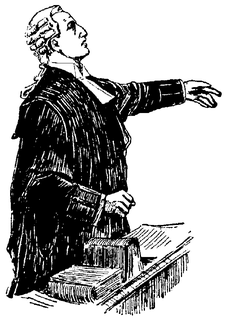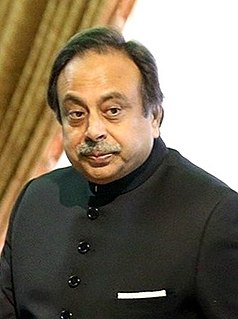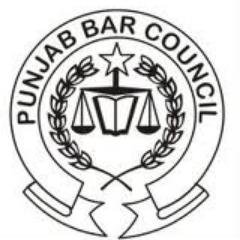
A barrister is a type of lawyer in common law jurisdictions. Barristers mostly specialise in courtroom advocacy and litigation. Their tasks include taking cases in superior courts and tribunals, drafting legal pleadings, researching the philosophy, hypothesis and history of law, and giving expert legal opinions. Often, barristers are also recognised as legal scholars.
In most common law jurisdictions, the attorney general or attorney-general is the main legal advisor to the government. The plural is attorneys general (traditional) or attorney generals.

The House of Lords of the United Kingdom, in addition to having a legislative function, historically also had a judicial function. It functioned as a court of first instance for the trials of peers, for impeachment cases, and as a court of last resort within the United Kingdom. In the latter case the House's jurisdiction was essentially limited to the hearing of appeals from the lower courts. Appeals were technically not to the House of Lords, but rather to the Queen-in-Parliament. By constitutional convention, only those lords who were legally qualified heard the appeals, since World War II usually in what was known as the Appellate Committee of the House of Lords rather than in the chamber of the House.

A Queen's Counsel, or King's Counsel during the reign of a king, is an eminent lawyer who is appointed by the monarch to be one of "Her Majesty's Counsel learned in the law." The term is recognised as an honorific. The position exists in some Commonwealth jurisdictions around the world, but other Commonwealth countries have either abolished the position, or re-named it to eliminate monarchical connotations, such as "Senior Counsel" or "Senior Advocate". Queen's Counsel is an office, conferred by the Crown, that is recognised by courts. Members have the privilege of sitting within the bar of court.
A solicitor general or solicitor-general, in common law countries, is usually a legal officer who is the chief representative of a regional or national government in courtroom proceedings. In systems that have an attorney-general, the solicitor general is often the second-ranked law officer of the state and a deputy of the attorney-general. The extent to which a solicitor general actually provides legal advice to or represents the government in court varies from jurisdiction to jurisdiction, and sometimes between individual office holders in the same jurisdiction.
The Director of Public Prosecutions (DPP) is the office or official charged with the prosecution of criminal offences in several criminal jurisdictions around the world. The title is used mainly in jurisdictions that are or have been members of the Commonwealth of Nations.
In England and Wales, Northern Ireland and most Commonwealth and colonial governments, the chief law officer of the Crown is the Attorney General.

Sir Mian Abdul Rashid, KCSI was the first Chief Justice of Pakistan, legal philosopher, one of the founding fathers of Pakistan, and a jurist.

The judiciary of Pakistan is a hierarchical system with two classes of courts: the superior judiciary and the subordinate judiciary. The superior judiciary is composed of the Supreme Court of Pakistan, the Federal Shariat Court and five High Courts, with the Supreme Court at the apex. There is a High Court for each of the four provinces as well as a High Court for the Islamabad Capital Territory. The Constitution of Pakistan entrusts the superior judiciary with the obligation to preserve, protect and defend the constitution. Neither the Supreme Court nor a High Court may exercise jurisdiction in relation to Tribal Areas, except otherwise provided for. The disputed regions of Azad Kashmir and Gilgit–Baltistan have separate court systems.

Francis Mulholland, Lord Mulholland, is a Scottish judge who has been a Senator of the College of Justice since 2016. He previously served from 2011 to 2016 as Lord Advocate, one of the Great Officers of State of Scotland and the country's chief Law Officer, and as Solicitor General, the junior Law Officer.
Honourable Justice Khalil-ur-Rehman Ramday was an ad hoc judge later appointed as a permanent judge of the Supreme Court of Pakistan. He remained permanent judge of Supreme Court from 2002 to 2010. He was born in Lahore on 13 January 1945. His late brother Chaudhary Muhammad Farooq had served as the Attorney General of Pakistan. His younger brother Chaudhary Asad-ur-Rehman, a politician, was elected as a Member of the National Assembly three times on a Pakistan Muslim League (Nawaz) (PML-N) ticket and served as a Federal minister as well.
Makhdoom Ali Khan, is a practising Senior Advocate Supreme Court. Makhdoom Ali Khan is a former Attorney General of Pakistan, former chairman Pakistan Bar Council, former member of the Law and Justice Commission of Pakistan, former board member of the Federal Judicial Academy of Pakistan and a former board member of the Sindh Judicial Academy. He is a serving Member on the Governing Board of the British Pakistan Law Council, an Officer of the Board of the Forum for International Conciliation and Arbitration (FICACIC), a member of the Board of Trustees of the Dubai International Arbitration Centre, a member of the Advisory Board of the Citizens Police Liaison Committee (CPLC), a former member of the court of the London Court of International Arbitration and a member of the International Centre for Settlement of Investment Dispute's (ICSID) Chairman's Panel of Arbitrators. He has consistently been ranked amongst the top three litigators, in Pakistan over the last two decades both by reputation and in international rankings in legal publications and amongst the top two litigators in the Sindh High Court in Karachi. Since his return to private practice in 2007 he is globally regarded as the preeminent commercial, taxation and constitutional litigator, arbitrator and arbitration lawyer in Pakistan.

Ashtar Ausaf Ali is a Pakistani lawyer who served as the 32nd Attorney-General for Pakistan from 2016 to 2018. He also served as ex-officio Chairman of the Pakistan Bar Council.
Justice Muhammad Nawaz Bhatti was a Sheikhupura and Sangla Hill-based Pakistani judge and lawyer. He was a judge of Lahore High Court, Lahore, (Punjab) Pakistan and a well known criminal lawyer and law officer representing the governments of Punjab and Pakistan.
Justice Ijaz Ahmed Chaudhry is a justice in the Supreme Court of Pakistan and a former justice of Lahore High Court.
The courts of assize, or assizes, were periodic courts held around England and Wales until 1972, when together with the quarter sessions they were abolished by the Courts Act 1971 and replaced by a single permanent Crown Court. The assizes exercised both civil and criminal jurisdiction, though most of their work was on the criminal side. The assizes heard the most serious cases, which were committed to it by the quarter sessions, while the more minor offences were dealt with summarily by justices of the peace in petty sessions.

The Punjab Bar Council is a deliberative assembly of lawyers in Punjab. It is established by Parliament of Pakistan and consists of 75 members elected from different constituencies of Punjab. Its main functions are to promote and suggest law reforms, to safeguard the rights, interests and privileges of practicing lawyers while regulating their conduct, to recognize or derecognize Bar associations and to help in the administration of justice. Punjab Bar Council also sends one of its Member to Judicial Commission of Pakistan, who gives advice and vote for the appointment of Lahore High Court Judges. The council is largest Provincial Bar Council in Pakistan with more than 100,000 advocates as its License holders. All Bar associations of Punjab including Tehsil Bar Associations, District Bar Associations and High Court Bar Associations work under the Jurisdiction of Punjab Bar Council. Currently more than 124 Bar associations are working under Punjab Bar Council. The lawyers recognized by the Council can only represent clients in the all Branches of Lahore High Court, District Courts and Session Courts in Punjab, Pakistan. The Punjab Bar Council is based in Lahore, Pakistan, came into being as a result of the promulgation of the Legal Practitioners and Bar Councils Act, 1973. The Council commenced functioning with effect from 1 January 1974.

R (Miller) v Secretary of State for Exiting the European Union [2017] UKSC 5 is a UK constitutional law case decided by the United Kingdom Supreme Court on 24 January 2017, which ruled that the UK Government may not initiate withdrawal from the European Union by formal notification to the Council of the European Union as prescribed by Article 50 of the Treaty on European Union without an Act of the UK Parliament permitting the government to do so. Two days later, the government responded by bringing to Parliament the European Union Bill 2017 for first reading in the House of Commons on 26 January 2017. The case is informally referred to as "the Miller case" or Miller's case.
The Court of Common Pleas of the County Palatine of Lancaster, sometimes called the Common Pleas of or at Lancaster was a court of common pleas that exercised jurisdiction within the County Palatine of Lancaster until its jurisdiction was transferred to the High Court by the Supreme Court of Judicature Act 1873. It was a Superior Court of Record, exercising, within the limits of the County Palatine, a jurisdiction similar to that of the superior courts of common law at Westminster.


















